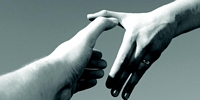The number of alcohol related car accidents in Michigan is staggering. In 2008 alone, there were 379 fatal accidents related to alcohol and drug related offenses. In that same year, there were over 47,000 alcohol and drug related driving arrests in Michigan. In addition to the fatal car accidents, there were a significant number of serious injuries caused by drunk driving accidents.
The victim of a drunken driving accident has the right to sue the drunk driver and the owner of the vehicle for injuries and damages caused by the accident. In addition to these civil claims for compensation against, an injured victim (or family members of a deceased victim) may have a claim for damages against a retail liquor licensee that sold alcohol to a drunk driver. An example would be a bar that served alcohol to the drunk driver. These claims are brought under, and controlled by, the Michigan Dram Shop Law. In many circumstances, these claims result in significant additional compensation to the victim.
In order to pursue a claim against a bar (or other retail liquor establishment) under the Dram Shop Law, the injured party must prove that the injury or death was caused by a retail licensee’s unlawful selling, giving, or furnishing of alcohol to a “visibly intoxicated person” or a minor. Visible intoxication is intoxication “apparent to an ordinary observer.” Furnishing intoxicants to a minor (a person younger than age 21) isper seunlawful and visible intoxication need not be shown.
Under Michigan case law, you must establish that the person was visibly intoxicated when served alcohol through eyewitness testimony. This requires identifying and locating other people who were present at the time and obtaining testimony from them on how the person looked and acted at the time. It is important to choose a lawyer as soon as possible after the accident so that an investigator is hired to locate all potential witnesses.
There are shortened time limitations in which to bring a claim against a liquor licensee under the Dram Shop Act. First, there is a 120 day notice provision which requires the victim to send written notice to the licensee within 120 days of retaining an attorney. Second, a dram shop lawsuit must be filed in the proper trial court within 2 years after the injury or death. It is also necessary to name and retain the drunk driver in the lawsuit. This is another reason why it is so important to choose your lawyer as soon as possible after the accident.
The Dram Shop law controls liability in cases involving retail liquor licensees. There are, of course, circumstances in which a drunk driver was furnished alcohol at a private residence, party, or event. In those circumstances, Michigan law can impose liability under what is called“Social Host Liability.”Social host liability is the potential liability of a person or an entity other than a retail licensee for the unlawful furnishing of alcoholic beverages. The liability of a social host in Michigan has been recognized only in the case of providing alcohol to a minor.
The "social host" must knowingly provide alcoholic beverages to a minor or have failed to diligently inquire whether the individual was less than 21 years old. The Michigan Courts have held that the social host must actually provide the alcoholic beverages and not just the setting in which the alcohol is consumed. However, if the minor is under 18, the parents may have a duty to supervise the minor children and this can provide the basis for a lawsuit.



